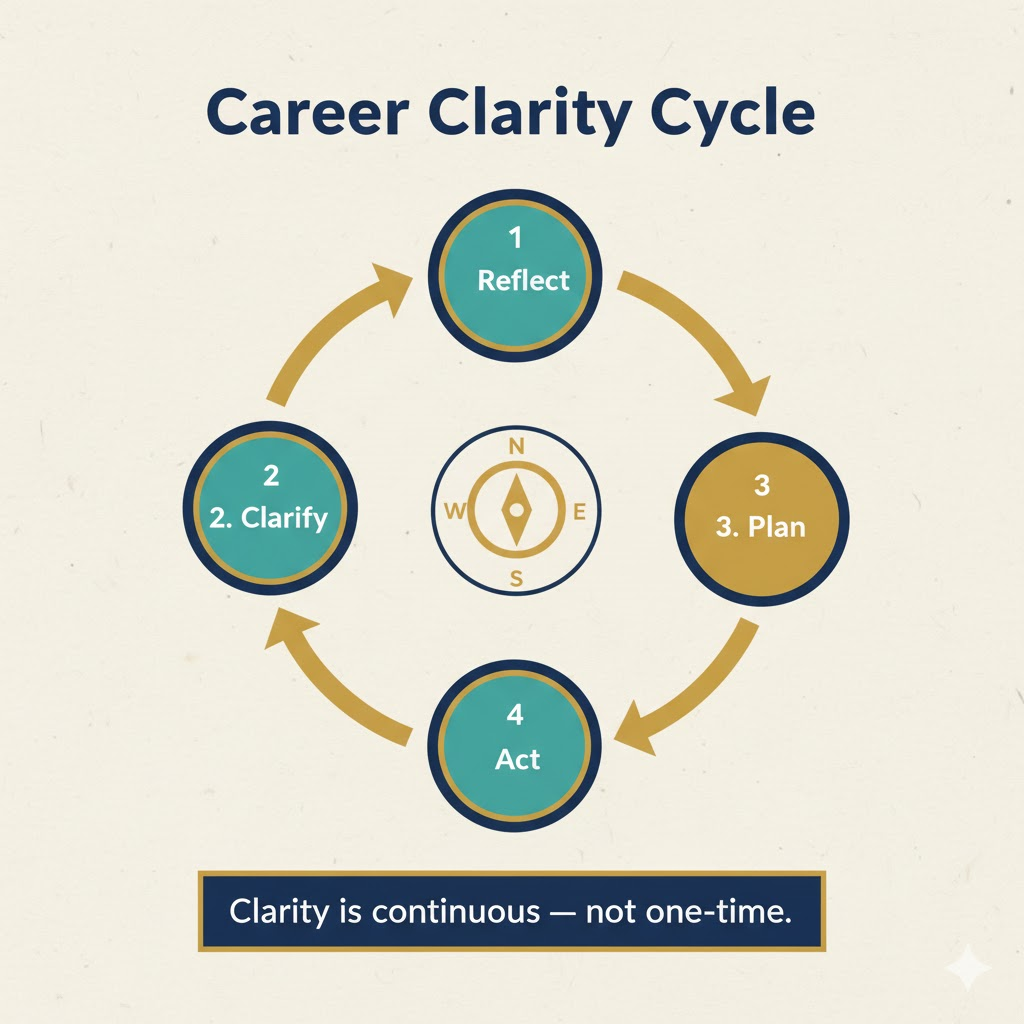

10 Crucial Questions To Consider Before Making A Career Change
Before a career change, ask the right questions: values, skills, finances, and goals. Plan strategically to pivot confidently without losing any momentum.

Before a career change, ask the right questions: values, skills, finances, and goals. Plan strategically to pivot confidently without losing any momentum.
What You’ll Learn in This Blog
Before you hand in your notice or dive into a new industry, take a moment to reflect—with strategy. In this blog, you’ll learn how to:
A career change isn’t just a job switch — it’s a life redesign.
You’re not starting over; you’re realigning who you are with how you work.
And in an era of expanding remote opportunities and evolving skill sets, more professionals are asking: What’s next—and how do I make the right move?
Here’s your roadmap: ten questions that bring clarity before you leap—and help ensure the next chapter fits better than the last.
Before you upend everything, pause.
Is it the work itself that drains you, or just the environment around it?
Sometimes the issue isn’t your field—it’s the culture, the team, or leadership misalignment. Recognizing this difference prevents impulsive decisions that trade one frustration for another.
(At FutureKickoff, we often see that what feels like “career burnout” is actually “context burnout.” Knowing which one changes the strategy.)
Once you know whether it’s the role or the environment, the next step is to uncover your deeper motivation.
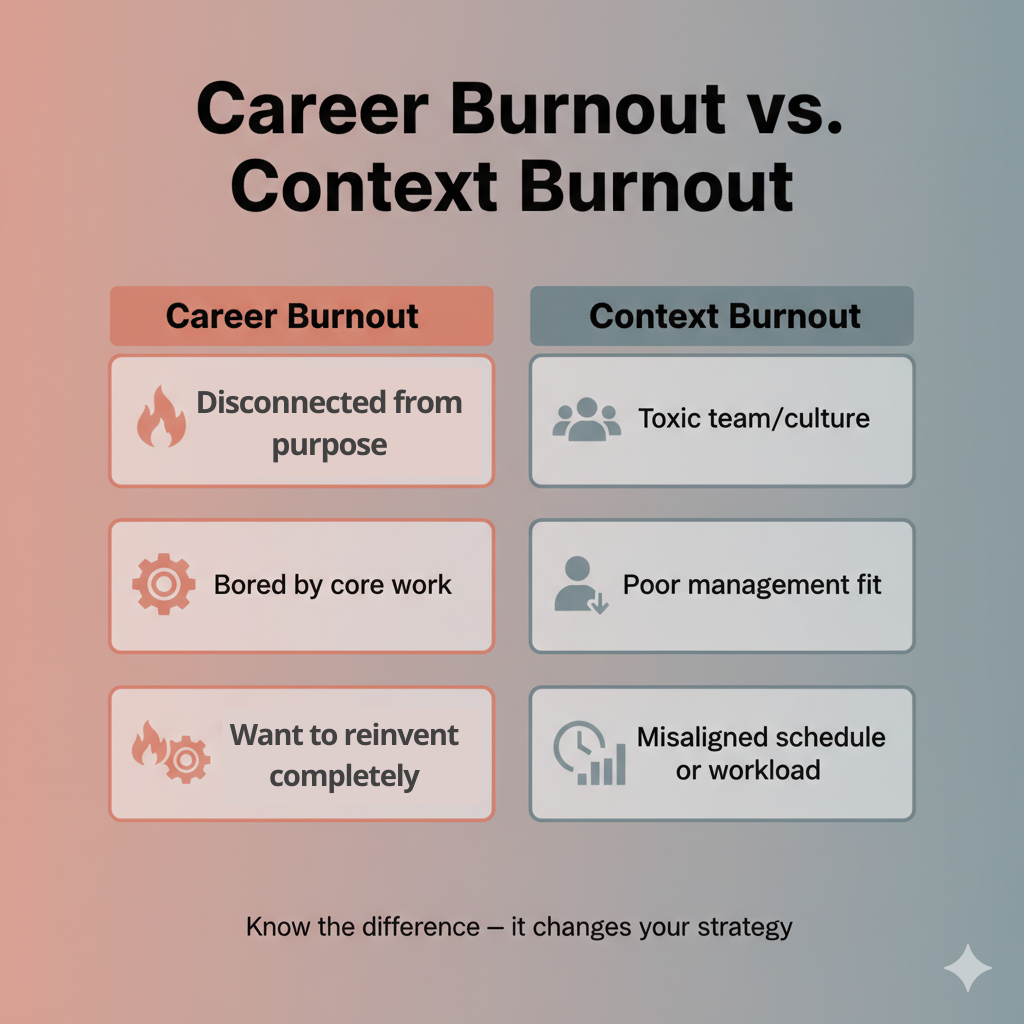
A career pivot without a clear “why” is like navigating without a compass.
Are you chasing meaning, freedom, balance, or better pay?
Your “why” sets the direction for everything that follows—and it evolves over time.
If it’s fuzzy, take time to articulate it. Because when your why is strong, every choice becomes easier to measure.
That’s how clarity turns into momentum.
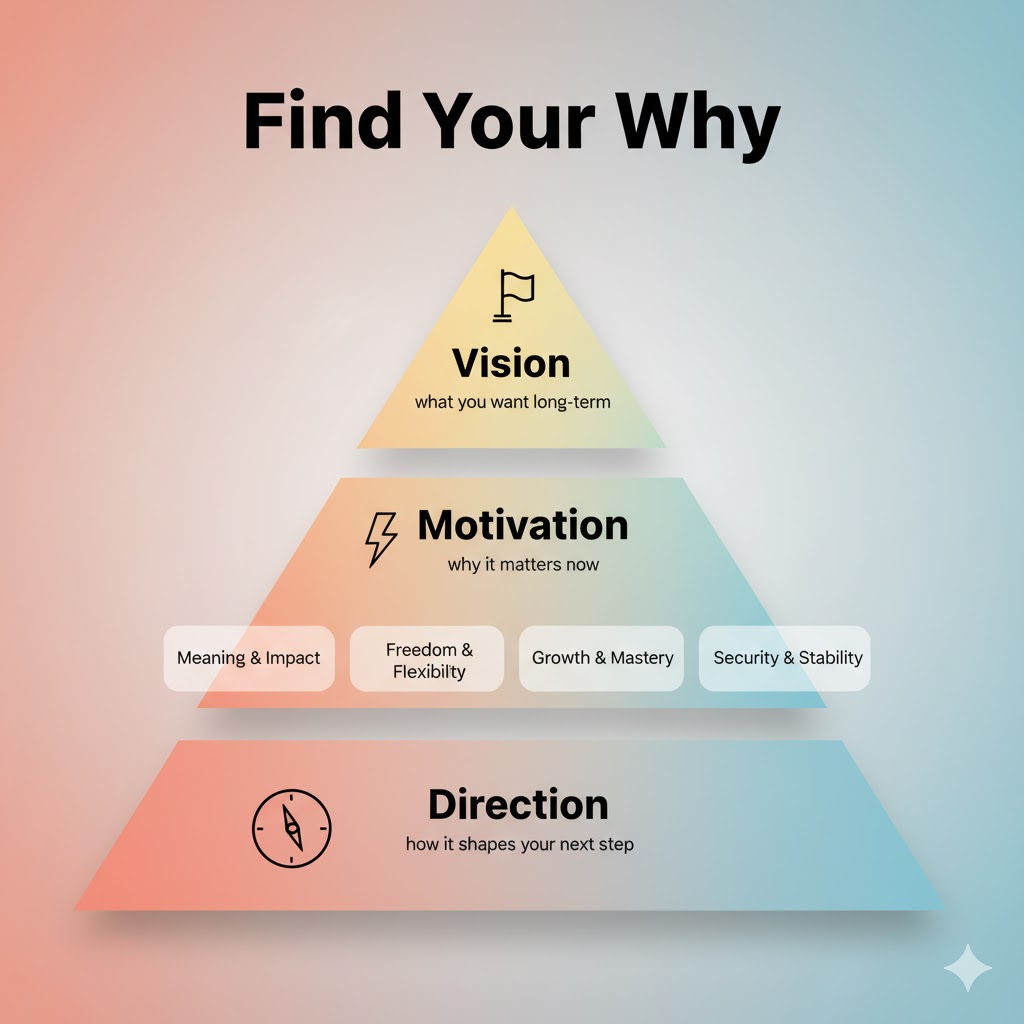
When your work clashes with your values, even success feels hollow.
Do you value creativity, autonomy, or social impact? If your current job rewards the opposite, frustration is inevitable.
Your next step should fit not only your skills, but your principles.
At FutureKickoff, we start every coaching engagement by identifying core values. It’s the foundation that makes all future decisions simpler and sharper.
Once your values are clear, the next question becomes: how do your existing skills fit into that new direction?
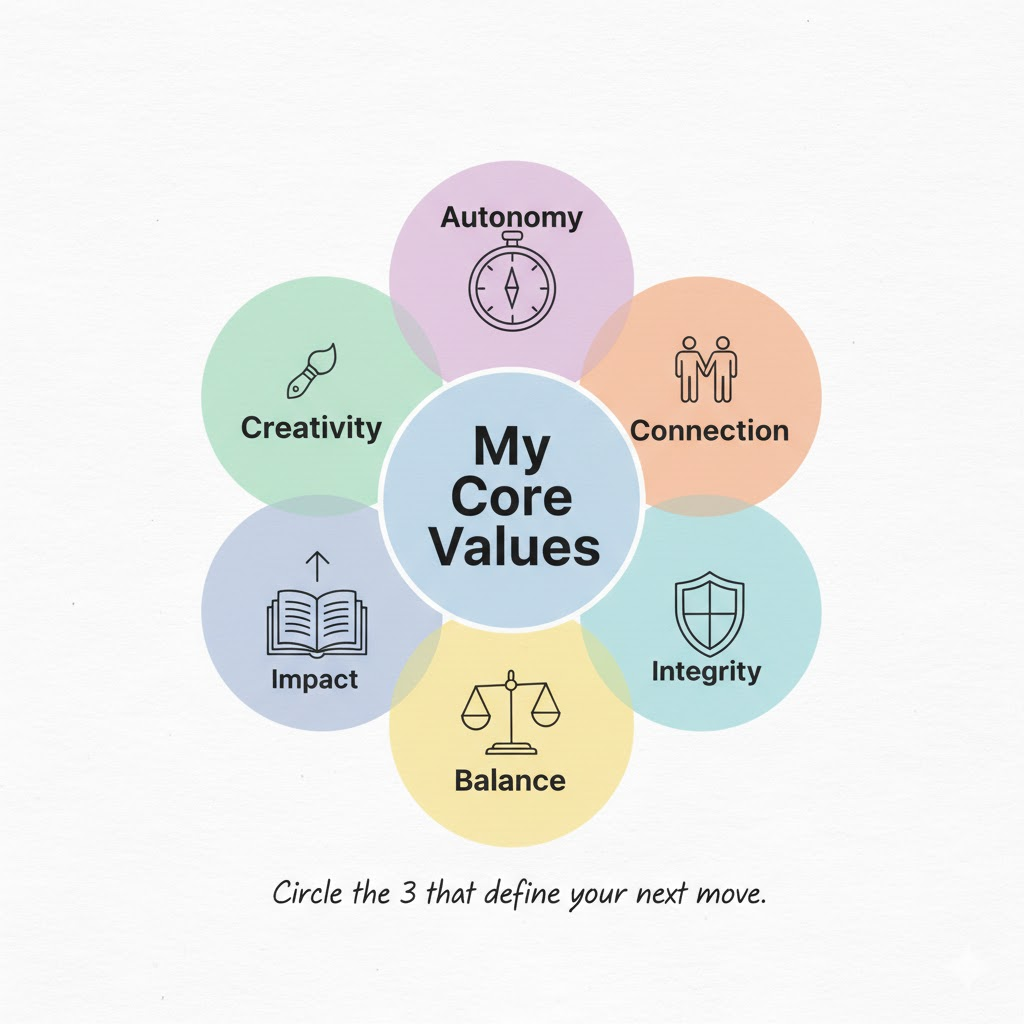
Here’s the thing:
Most mid-career professionals underestimate how many of their skills—leadership, project strategy, communication—are portable.
The key is framing them in a way new industries understand.
We help clients connect past achievements to future opportunities, translating experience into positioning that recruiters recognize.
By mapping what you already bring to the table, you’ll see how much is still relevant—and valuable.
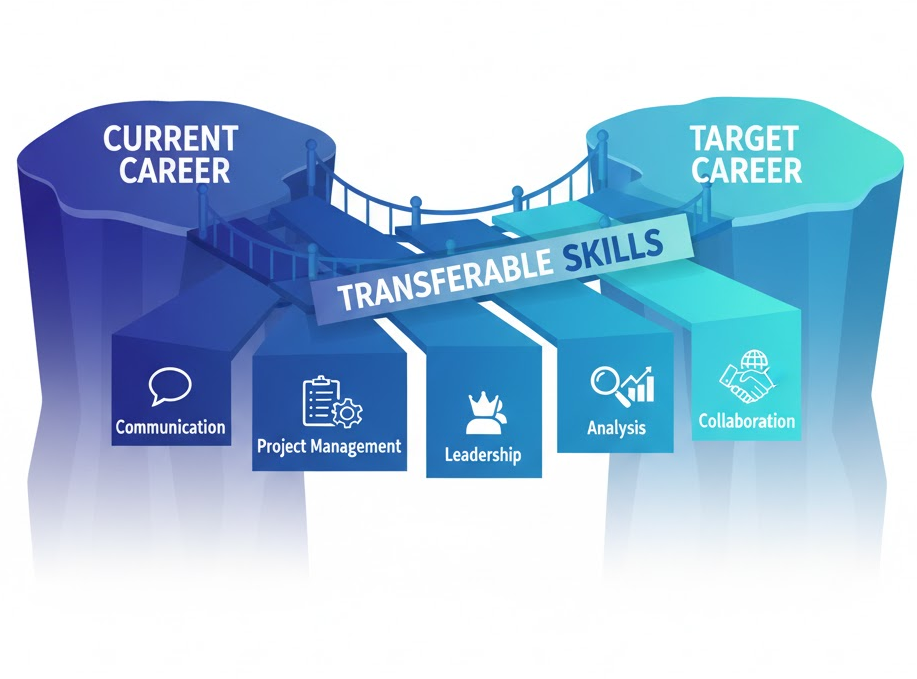
Let’s get practical.
Every career change has a price tag: sometimes time, sometimes training, sometimes income.
That’s not a reason to pause; it’s a reason to plan.
Create a realistic timeline, assess your financial runway, and identify what support you’ll need to bridge the gap.
At this stage, smart planning replaces fear with structure—and that structure is what keeps your momentum steady.
By 2025, over 36 million Americans are said to work remotely, with many searching for tips to land a high-paying remote job in 2025, many through high-paying industries like tech consulting and strategy. A bit of planning today positions you to take advantage of those expanding opportunities tomorrow.
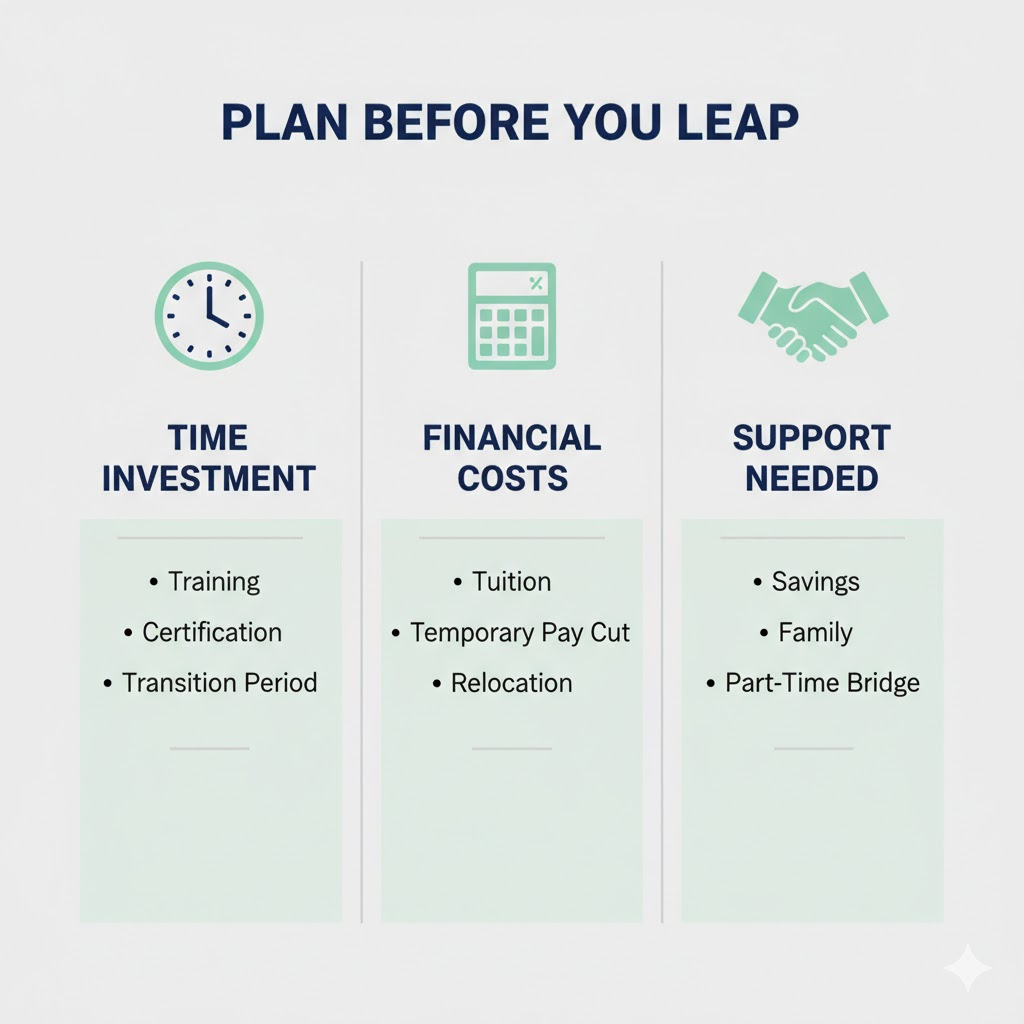
Passion is important—but practicality pays the bills.
Research which industries are growing, which careers will thrive in the age of automation, which roles are in demand, and what skills command premium pay.
Look for overlap between what excites you and what the market rewards.
When you balance purpose with strategy, your next move becomes sustainable, not reactionary.
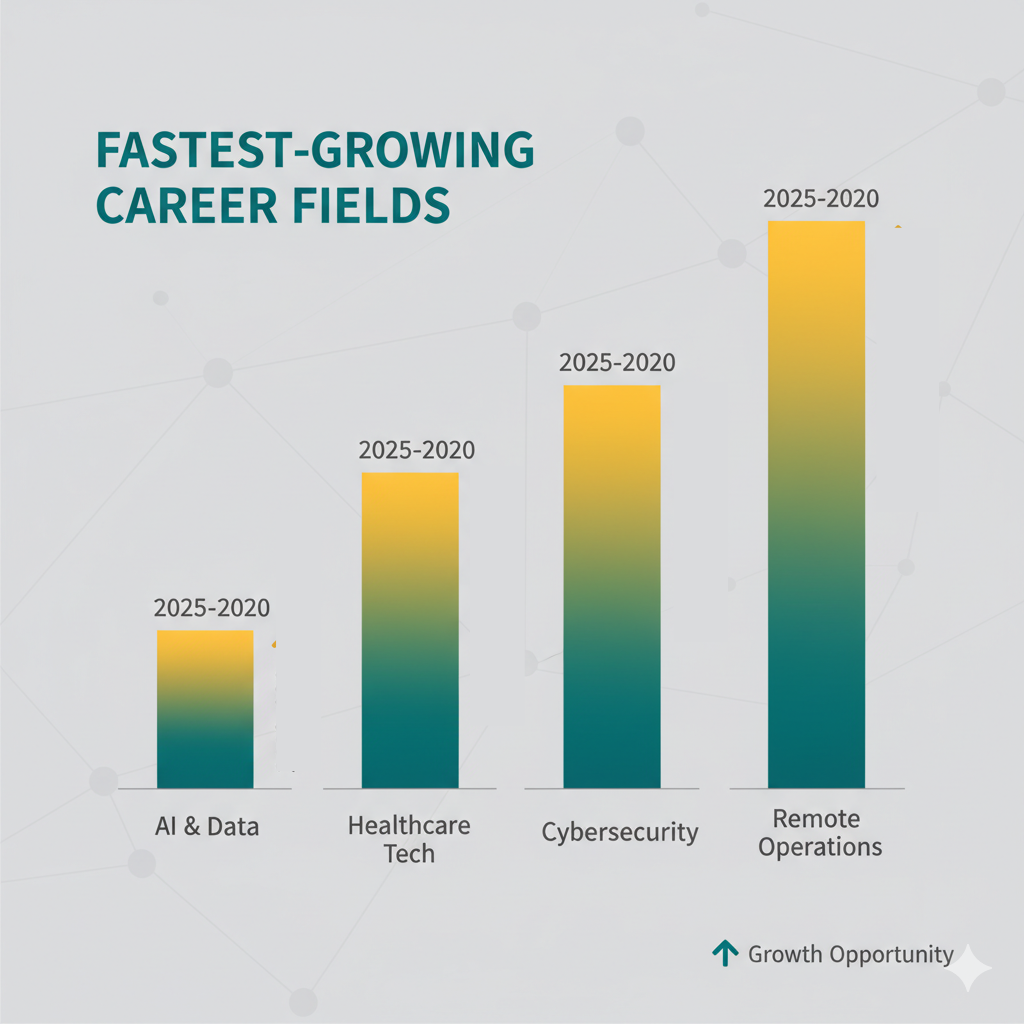
Balance isn’t about working less—it’s about working in rhythm with your life.
Maybe you’re seeking flexibility, autonomy, or time for family. Define what “enough” looks like before you pursue it.
That clarity will guide which roles, environments, and schedules actually fit.
(One of the most overlooked parts of career design is this: you get to define success on your own terms.)
And sometimes, that new definition means rebuilding parts of your career from the ground up.
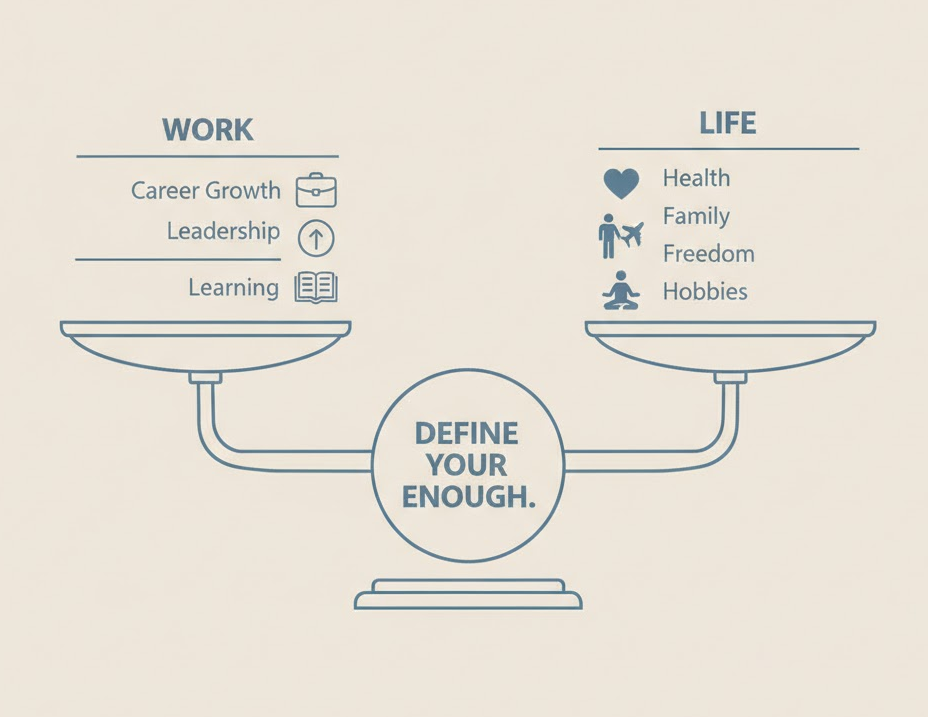
Some pivots require patience, and you might need to take a short-term pay cut or rebrand your expertise.
But don’t confuse starting over with losing ground.
You’re bringing years of judgment, credibility, and problem-solving that no new degree can teach.
We help clients reframe their experience so it reads as evolution—not reinvention.
That story makes hiring managers see potential, not risk.
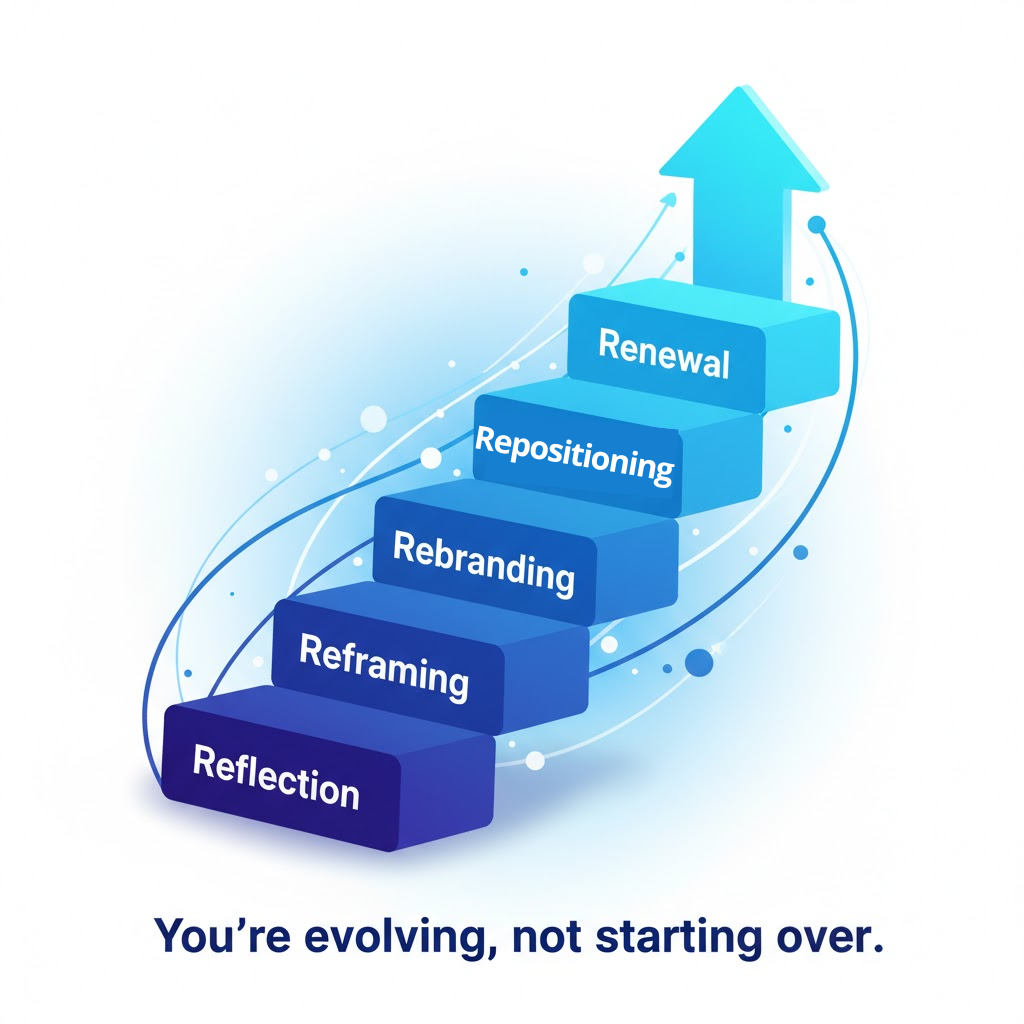
A smart Plan B doesn’t mean doubt—it means design.
If your first path takes longer than expected, what’s your bridge plan? Consulting? Fractional work? Contract roles?
Having options reduces fear and keeps you in motion when plans change.
You don’t need certainty to move forward—you need flexibility built on self-awareness.
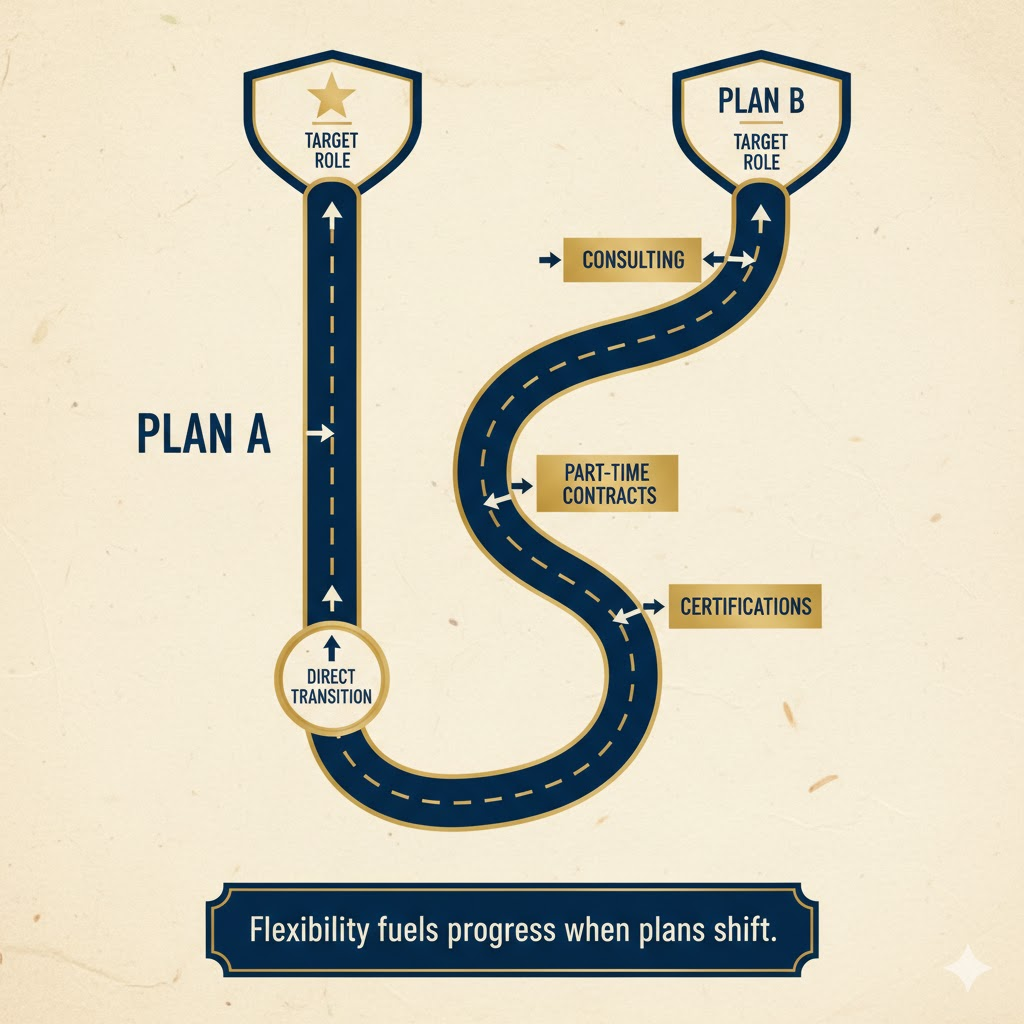
Every big decision affects more than just your calendar.
Talk with the people who share your life about how this shift might influence your routines, finances, and priorities. Their support—and your boundaries—will make or break how sustainable this change feels.
Career clarity means little without life alignment. Make sure both move in tandem.
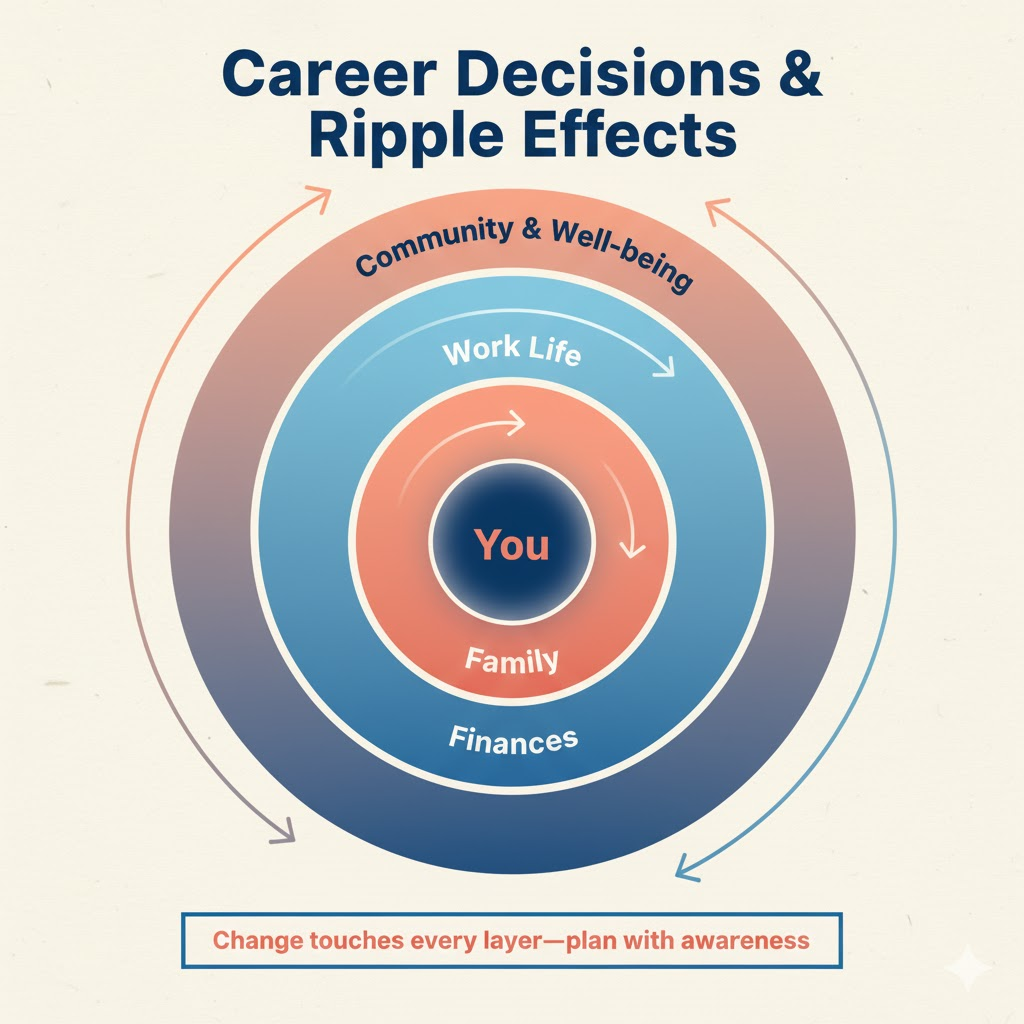
Answering these questions is step one. Acting on them is where transformation begins.
If you’re serious about finding your next high-paying, purpose-driven remote role—and doing it with confidence, not guesswork—a career clarity partnership can help you get there faster.
No templates. No jargon. Just structured strategy, emotional intelligence, and real progress.
Explore private career coaching with FutureKickoff
You’ve got this—and we’ve got you.
